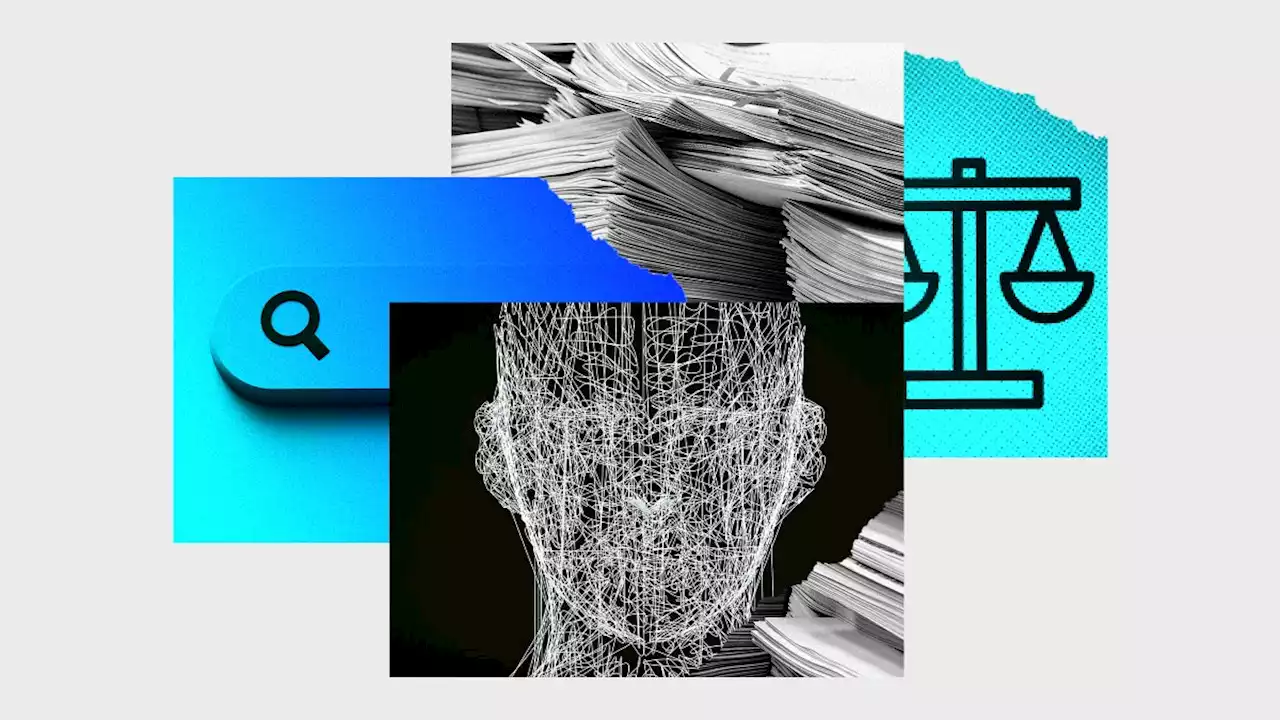Courts are woefully unprepared for a future where anyone with a chatbot can become a high-volume filer, or rely on chatbots for desperately-needed legal advice. 🎨: WIRED Staff; Getty Images
to “robot lawyers,” even if the outputs have mistakes or user data isn’t kept confidential? The reality is that people will use tools like ChatGPT for legal help because they can’t get help anywhere else.
Maybe it works, and chatbots help people feel more empowered and confident about coming to court. Maybe the right tool, deployed the right way, helps people without lawyers overcome all of the procedural hurdles and avoid all of the potential pitfalls that arise when filing and defending court cases. Maybebecomes a community organizing tactic, a distributed alternative to class actions.
But even if all those maybes come to pass, here’s the dirty secret about those debt case defaults: If each and every case were vigorously defended, not only would more defendants win, but courts everywhere would crack under the workload. Courts are incentivized to maintain a system that hurts defendants because they’re unable to manage the alternative.
To head off defective cases, courts should incorporate design friction into high-volume filing processes. State and local courts overwhelmingly rely on basic PDFs, which put the burden of finding and correcting errors on overworked court staff. Meanwhile, nearly every web form or API on the internet includes simple validation checks—you simply can’t submit a form that is incomplete or riddled with errors.
Nigeria Latest News, Nigeria Headlines
Similar News:You can also read news stories similar to this one that we have collected from other news sources.
 Power Lawyers 2023: Five of Hollywood’s Legal LegendsTheir expert handling of everything from overall deals to high-stakes court battles has earned them icon status.
Power Lawyers 2023: Five of Hollywood’s Legal LegendsTheir expert handling of everything from overall deals to high-stakes court battles has earned them icon status.
Read more »
 Here's what to follow as the Texas abortion medication ruling plays out in the courtsThe issue is likely to make it to the Supreme Court, legal analysts say. mifepristone AbortionPill AbortionIsHealthcare AbortionRightsAreHumanRights abortionban Texas
Here's what to follow as the Texas abortion medication ruling plays out in the courtsThe issue is likely to make it to the Supreme Court, legal analysts say. mifepristone AbortionPill AbortionIsHealthcare AbortionRightsAreHumanRights abortionban Texas
Read more »
 Abortion questions intensify in US courts, legislaturesDueling judicial opinions on the future availability of abortion pills could shake up the U.S. landscape
Abortion questions intensify in US courts, legislaturesDueling judicial opinions on the future availability of abortion pills could shake up the U.S. landscape
Read more »
 Abortion questions intensify in US courts, legislaturesDueling judicial opinions on the future availability of abortion pills could shake up the U.S. landscape.
Abortion questions intensify in US courts, legislaturesDueling judicial opinions on the future availability of abortion pills could shake up the U.S. landscape.
Read more »
 Abortion questions intensify in US courts, legislaturesDueling judicial opinions on the future availability of abortion pills could shake up the U.S. landscape. Less than 10 months after the Supreme Court overturned the nationwide right to abortion, upheaval over what's allowed and what's not is escalating. In addition to a wave of new state laws, sweeping actions have come from federal judges in Texas and Washington state. The rulings are prompting more court filings in cases likely to wind up before the Supreme Court. There's other key action, too: Court arguments in Iowa, legislation and litigation in Montana, and a push for tighter restrictions by lawmakers in Nebraska and Florida all may affect future access to abortion.
Abortion questions intensify in US courts, legislaturesDueling judicial opinions on the future availability of abortion pills could shake up the U.S. landscape. Less than 10 months after the Supreme Court overturned the nationwide right to abortion, upheaval over what's allowed and what's not is escalating. In addition to a wave of new state laws, sweeping actions have come from federal judges in Texas and Washington state. The rulings are prompting more court filings in cases likely to wind up before the Supreme Court. There's other key action, too: Court arguments in Iowa, legislation and litigation in Montana, and a push for tighter restrictions by lawmakers in Nebraska and Florida all may affect future access to abortion.
Read more »
 Abortion questions intensify in US courts, legislaturesDueling judicial opinions on the future availability of abortion pills could shake up the U.S. landscape.
Abortion questions intensify in US courts, legislaturesDueling judicial opinions on the future availability of abortion pills could shake up the U.S. landscape.
Read more »
